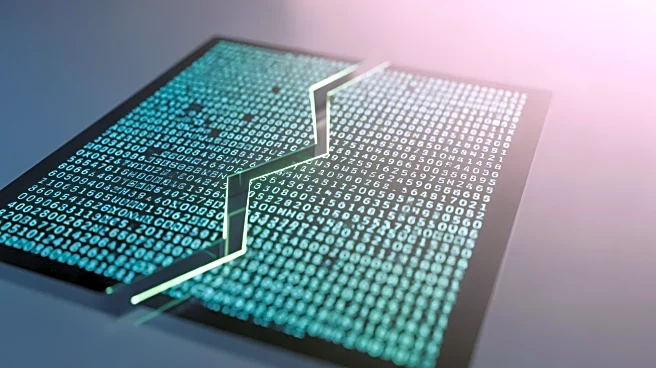What's Happening?
Contributors to GZDoom, a popular sourceport for the game Doom, have decided to split from the project following tensions with its creator, Christoph 'Graf Zahl' Oleckers. The conflict arose after Oleckers introduced
AI-generated code into the project, which some contributors, including Marcus Minhorst, claimed violated GitHub's licensing agreement. This move, along with other controversial updates, led to dissatisfaction among the community. In response, Oleckers suggested that contributors could fork the project, leading to the creation of UZDoom, a new fork intended to continue the development plans of GZDoom 5.0. The split has already impacted the Doom modding community, with projects like the World War 1-themed mod Trench Foot facing delays due to the transition.
Why It's Important?
The split within the GZDoom community highlights the challenges of managing open-source projects, especially when incorporating new technologies like AI-generated code. This development could have significant implications for the modding community, as GZDoom has been a foundation for numerous mods and games. The creation of UZDoom represents a shift in leadership and direction, potentially affecting the future of Doom modding. Contributors and developers may face uncertainties during the transition, but there is optimism about the potential for new features and improvements that were previously stalled. This situation underscores the importance of community management and the impact of technological changes on collaborative projects.
What's Next?
The newly formed UZDoom aims to continue the development plans initially set for GZDoom 5.0, including updates to netcode and support for ray tracing. The community is expected to adapt to the new leadership and direction, with contributors like Ricardo Luís Vaz Silva indicating that the roadmap will remain largely unchanged. The transition may lead to delays in some projects, but there is hope for long-term benefits and the realization of previously shelved features. The modding community will likely monitor the progress of UZDoom closely, as it could set a precedent for handling similar conflicts in other open-source projects.
Beyond the Headlines
The split from GZDoom raises broader questions about the role of AI in software development and the ethical considerations of using AI-generated code. It also highlights the potential for community-driven projects to evolve independently when disagreements arise. The situation may prompt other open-source communities to reevaluate their governance structures and decision-making processes to prevent similar conflicts. Additionally, the success of UZDoom could inspire other developers to pursue independent forks when faced with management challenges, potentially leading to a more diverse and innovative modding landscape.









